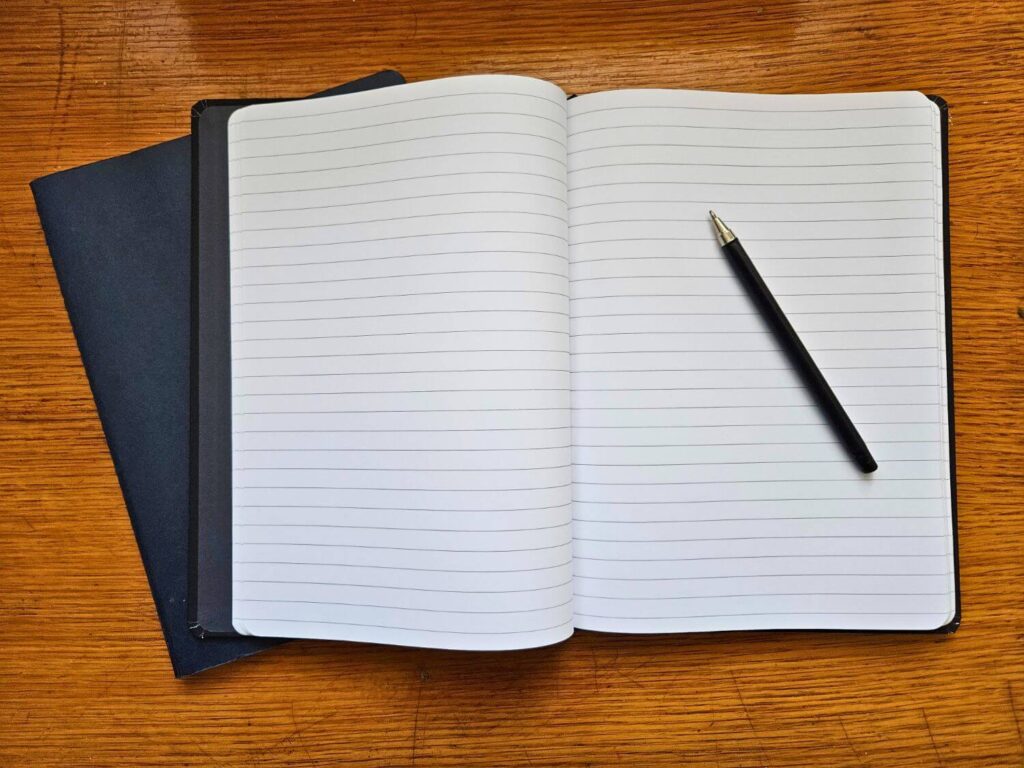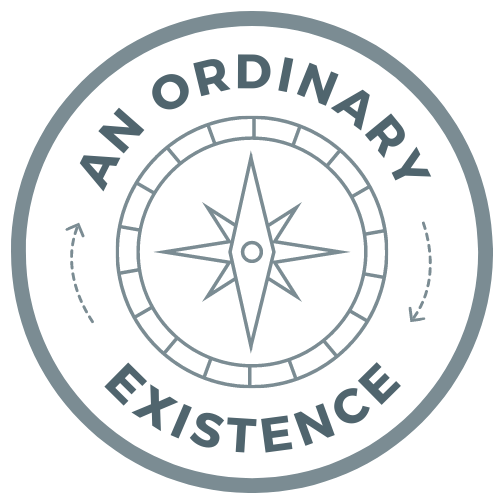5 WAYS TO EMBRACE THE NEW YEAR WITHOUT MAKING RESOLUTIONS
The act of making New Years resolutions never felt quite right to me. It’s this big grand gesture. A declaration of all the things we will no longer be and the things we will morph ourselves into. It feels heavy and pressure-based. You must do this… or else.
There’s a reason the vast majority of resolutions don’t stick. It’s because they’re based on deleting entire portions of our lives or routines and replacing them with things that don’t come naturally to us.
This post may include affiliate links. As an Amazon Associate I earn from qualifying purchases. Find more info in my privacy policy.
If you’re really looking to make shifts in your life or accomplish big goals, it’s not about changing who you are or putting extreme pressure on yourself to stop or start doing something with no room for error. It’s about recognizing what aligns with your goals and making choices that move you closer to achieving them in a realistic way.
While I’m not a big subscriber to resolutions, I do still find that reflection and planning are a crucial part of achieving your goals. And I believe that the changeover of the calendar year is a great time to do this.

Below are five things I do at the new year that don’t involve making meaningless resolutions. Instead, each of them focus on thoughtful observation, reflection, planning, and actions that contribute to getting clear on your goals, prioritizing habits, making space, and honing in on the skills and knowledge you need to craft a life you love.
I realize that all of these things can feel overwhelming if you’re trying to tackle them all at once. I recommend taking however much time you need and to avoid putting pressure on yourself to have them all figured out by 11:59 pm on January 1.
Personally, I find that weird stretch of time between Christmas and the New Year, plus the first two weeks of January (or, even the whole month sometimes) to be the perfect in-between time to work through the process.
YEAR COMPASS
Year Compass is a self-printed booklet that can be downloaded online for free. It is filled with prompts and questions that will help you reflect on the past year and look forward to the year ahead.
What I love about the Year Compass is the fact that it helps you look back on the year and identify significant things that happened (good and bad), as well as patterns, accomplishments, and missed goals.
It’s a great way to see where your time and energy was spent and lets you decide whether that’s something you want to continue to or if there are things holding you back from achieving your goals.
The section focusing on the year ahead really helps you to home in on your dreams and what you truly want your life to look like and how you might move closer to that.
You can find the download at yearcompass.com.
DESIGN YOUR DAILY PRACTICE
Heather Jo Flores is a permaculture practitioner and teacher who provides a number of free online courses, including Design Your Daily Practice. For many people, the term permaculture may conjure up thoughts of gardens and backyard chickens, but this design practice can actually be applied to any and all areas of life – including your daily habits.
Design Your Daily Practice includes videos, prompts and worksheets that help you take a really honest look at where and how you spend your time and find ways to reprioritize to ensure you’re creating space for the things that really matter to you.
This can of course be done any time, but the new year is a perfect time for a reset.
A DIGITAL DETOX
After running through the exercises above and realizing just how much time you’re actually spending in front of a screen, a digital detox will sound like a great idea. And it is.
We spend so much of our lives online that it’s difficult to know how much of that is truly necessary and how much of that is simply a distraction keeping us from finding time for things we wish we could prioritize.
You can decide how extreme you want to take it – whether it’s simply giving up social media for a few days or setting an out-of-office and taking a full break from all things digital for an extended period.
I recommend deleting or setting restrictions on the apps on your phone to make it harder to mindlessly scroll. You might just be shocked at how many times a day you reach for your phone without even thinking about it.
THE PURGE
Cluttered spaces = cluttered minds and in our modern world it is all too easy to let things pile up in both our physical and digital lives.
The Purge is one of my most overwhelming and rewarding annual events. I basically take the entire month of January to declutter everything from countertops to closets to inboxes to digital photo folders. Doing one small thing a day is the trick to this task as otherwise it will simply become way too much to handle.
In the physical world, go through your items and donate, sell, gift, or dispose of all the things you no longer need. Think clothing, books, hobby supplies, shoes, bags, etc. Go through everything, room-by-room. Decluttering like this will not only help you get rid of things but will also keep you more organized and you’ll know what you have and where it is.
In the digital world, take some time to sort, delete and organize photos and digital files. Unsubscribe from email lists, TV, and music subscriptions you no longer use. Set up folders in your email and sort your inbox. With so much of our lives online these days, it’s more important than ever to keep that space organized and decluttered as well.
12 SKILLS. 12 CHALLENES. 0 RESOLUTIONS.
12 Skills, 12 Challenges is my own approach to planning out my new year while avoiding the pit falls of setting strict resolutions for myself. I do find I need some structure and accountability when it comes to working toward my goals and this is a great way to keep that top of mind while also not putting unrealistic amounts of pressure on myself.
The idea is to think of 12 skills you’d like to learn and 12 challenges you’d like to set for yourself and then plan out your calendar by assigning one of each to each month of the year.
Remember that the goal here is not to master a new skill each month or to set challenges so hard you aren’t able to stick with them. Instead, you want to think baby steps. Focus on curiosity and interests that you just can’t seem to find the time for.
Think of your big overarching life goals and then step back to look at small things you could do throughout the year to get closer to that. For example, if one of your goals is to write more, your skill for January could be to take a creative writing course. Then your February challenge might be to write 1000 words per day.
Skills are things that you would like to learn or gather more information on – think taking courses, reading books, or trying something new for the first time without any pressure to continue on with that thing if you don’t want to.
Challenges are more consistent, habit-forming practices that would happen on a daily, weekly, or bi-weekly basis. Assign things here that you’d like to make a regular part of your routine, even if only for the short term.
Since we all have more than one goal we are simultaneously working toward, each month can have different skills and challenges, pertaining to different things. These might relate to a new hobby you want to try, your work, your family, or a passion you’ve let slip over the years.
Check out my 2024 Skills and Challenges plan for a full-year example of how I utilize this strategy.
I hope you find these fresh approaches to goal setting for the new year helpful and more useful than setting the same old, quickly abandoned resolutions of years past.
I’d love to hear about any new year practices you use, so please share in the comments!

